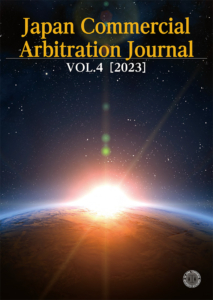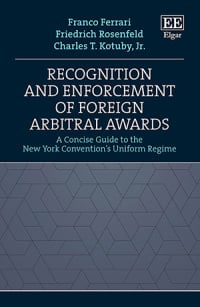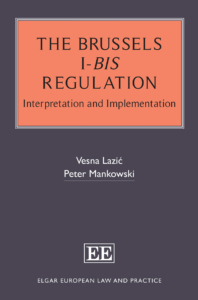The Japan Commercial Arbitration Association (JCAA), one of the oldest international arbitration institutions in the world, founded in 1950, has started to publish its annual journal on commercial arbitration – “Japan Commercial Arbitration Journal” – entirely in English. The Journal’s Volume 4, which has been published recently, features the following articles:

Miriam Rose Ivan L. Pereira
Combining Interactive Arbitration with Mediation: A Hybrid Solution under the Interactive Arbitration Rules
Masaru Suzuki, Shinya Sakuragi
The Use of Technology in the International Commercial Arbitration and the Consideration of Rulemaking
Kazuhisa Fujita
Current Status of International Arbitration from the Perspective of Corporate Law and Japan as the Place of Arbitration
Dai Yokomizo
International Commercial Arbitration and Public Interests: Focusing on the Treatment of Overriding Mandatory Rules
Yuji Yasunaga
Extending the Application of an Arbitration Agreement Involving a Corporation to Include its Representative
Kazuhiro Kobayashi
Scope, Amount and Sharing of Arbitration Expenses and Court Costs in Japan
Leon Ryan, Shunsuke Domon
Disputes in India ? Lessons from Mittal v Westbridge
Junya Naito, Motomu Wake
Potential for a New Arb-Med in Japan
Yoshihiro (Yoshi) Takatori
Arbitrator Training and Assessment ? How to Increase and Strengthen Resource of Arbitrators and ADR Practitioners
Shuji Yanase
On Dual Conciliation by Two Conciliators
Takeshi Ueda
Discussions and Challenges in Promoting Online Dispute Resolution
Shinji Kusakabe
Civil Litigation after the Introduction of IT, as Suggested by Scheduled Proceedings in Commercial Arbitration
All volumes can also be freely consulted and downloaded here.



